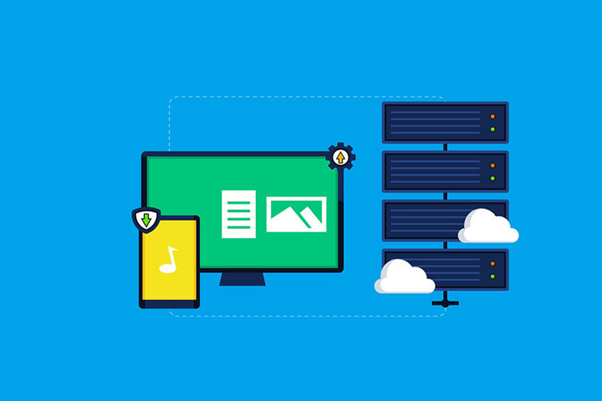Web hosting is a critical aspect of web development, enabling visitors to access your website online. As a startup, choosing the right web hosting is integral to the success of your business.
In the UK, where digital competition is intense, having a secure, reliable, and high-performance website can make all the difference in standing out. Two of the most popular hosting options available are WordPress Managed Hosting and Shared Hosting. While both have their advantages and drawbacks, the decision comes down to understanding what each type of hosting offers and what your specific needs are as a startup.
Let’s delve deep into these two hosting types to help you make an informed decision.
Managed WordPress Hosting
Managed WordPress Hosting is a specialized hosting service tailored for WordPress. The web host handles maintenance and server management tasks, including security patches and core software updates. Simply put, all the technical aspects of running a WordPress website are handled by the hosting provider, such as security management, speed optimization, backups, and so on.
Key features:
- Optimized and designed to host WordPress websites
- Performance optimization
- Automatic updates for WordPress plugins, core, and themes
- Regular backups
- High level of security with active monitoring
- Expert WordPress support
This option is particularly suitable for startups that have chosen WordPress as their CMS (content management system) and want a hands-off approach when it comes to managing the technical aspects of the website.
| Pros | Cons |
| Optimized for WordPress, ensuring better performance and faster loading times | Can be expensive, especially for larger websites with high traffic |
| Robust security measures are implemented to protect websites against threats | No email hosting |
| WordPress plugins and software are automatically updated | Some plugins might be boycotted or banned |
| Dedicated support teams are available to assist with any technical issues | Storage is often limited |
Shared Hosting
Shared Hosting is the most basic type of web hosting. It is a web hosting service where multiple websites share resources, such as RAM, CPU, and storage, on a shared server. It is an affordable option well-suited to small business websites and startups with limited traffic.
Shared Hosting is considered the most cost-effective hosting type, but if one website experiences a sudden traffic spike, others might load slower.
Key features:
- Multiple websites are hosted on the same server
- Budget-friendly pricing
- Shared resources (memory, CPU, storage, etc.)
- No specialization for any specific CMS (though you can install WordPress)
- Suitable for small websites with limited traffic
Shared Hosting is considered an excellent entry point for businesses that do not require heavy resources. However, before making your decision, you must understand its limitations and how they might impact your website’s performance.
| Pros | Cons |
| The most affordable option, making it suitable for startups and small businesses with limited budgets | Performance issues are common during peak traffic times because of resource limitations |
| User-friendly control panels that simplify website management | Less control over configurations and server settings compared to other hosting types |
| Requires minimal setup, making it an excellent choice for beginners | Vulnerable to security breaches if other websites on the same server are compromised |
Comparing Managed WordPress Hosting and Shared Hosting
| Feature | Managed WordPress Hosting | Shared Hosting |
| Performance | Servers are optimized for WordPress websites. They use various performance techniques, such as a content delivery network (CDN), server-side caching, and advanced caching plugins. Web traffic surges do not impact website performance. | Multiple websites share one server and its resources. Consequently, the overall performance depends on the resource usage of each user. Shared hosting providers might limit how much traffic each website can handle leading to slower loading times during traffic surges. |
| Security | High-level security measures, including automated backups, malware scanning, and WordPress-specific firewalls. Providers often offer automatic updates to reduce vulnerabilities. | Offers basic security features, such as malware scanning, firewall protection, automatic backups, and SSL (secure sockets layer) certificates. While these provide basic security, shared hosting users are expected to maintain the security of their own website. Website owners are responsible for plugin security and updates. Providers are not proactive in addressing potential security issues. |
| Ease of use | Website owners enjoy hands-off experience because the provider manages all the technical aspects, such as performance tuning, updates, and backups. It is ideal for non-technical users. | Most shared hosting services come with intuitive control panels like Plesk or cPanel. These panels offer easy access to critical settings like managing files, email accounts, and domain configurations. You’ll need to manage everything through these panels, which means the level of manual interaction is more and you may need some technical expertise to manage it all. |
| Customization | Due to the managed environment, customization is limited in terms of server settings. Focus is on security and performance rather than flexibility. | Greater flexibility with server settings. However, changes may impact the performance of other websites on the shared server. |
| Uptime | As a result of fewer websites on a server and better resource allocation, high uptime is guaranteed. | Uptime might be affected by the performance of other websites sharing the server. Traffic surge on other websites may reduce the availability of your website. |
| Scalability | Highly scalable. As your website grows, the hosting provider can upgrade your plan to accommodate the increased traffic. It is ideal for websites anticipating future growth. | Limited scalability. If your website outgrows the shared hosting environment, you may need to upgrade to a dedicated or VPS hosting. |
| Backup and recovery | Automatic daily backups with one-click restore options. | Backups are manual. Require additional fee for automated backups. |
| Cost | More expensive than shared hosting with prices ranging between £10-£50 per month depending on the plan. | Very affordable, with prices starting as low as £1-£10 per month. |
| Support | Premium support with WordPress expertise. | Standardized support. Often not specialized in WordPress. |
Conclusion: Which hosting is best for your UK startup?
The choice between Managed WordPress Hosting and Shared Hosting boils down to your startup’s budget, needs, and future growth plans.
For startups that have chosen WordPress, want to focus on growing their business without the hassle of managing technical aspects, and anticipate traffic growth, Managed WordPress Hosting is the better choice. It offers enhanced security, optimized performance, scalability, and expert support.
For startups with smaller websites and limited budgets that don’t expect significant traffic, Shared Hosting is an excellent entry-level option. However, if your website starts to grow, you’ll likely need to switch to a more robust solution down the line.


